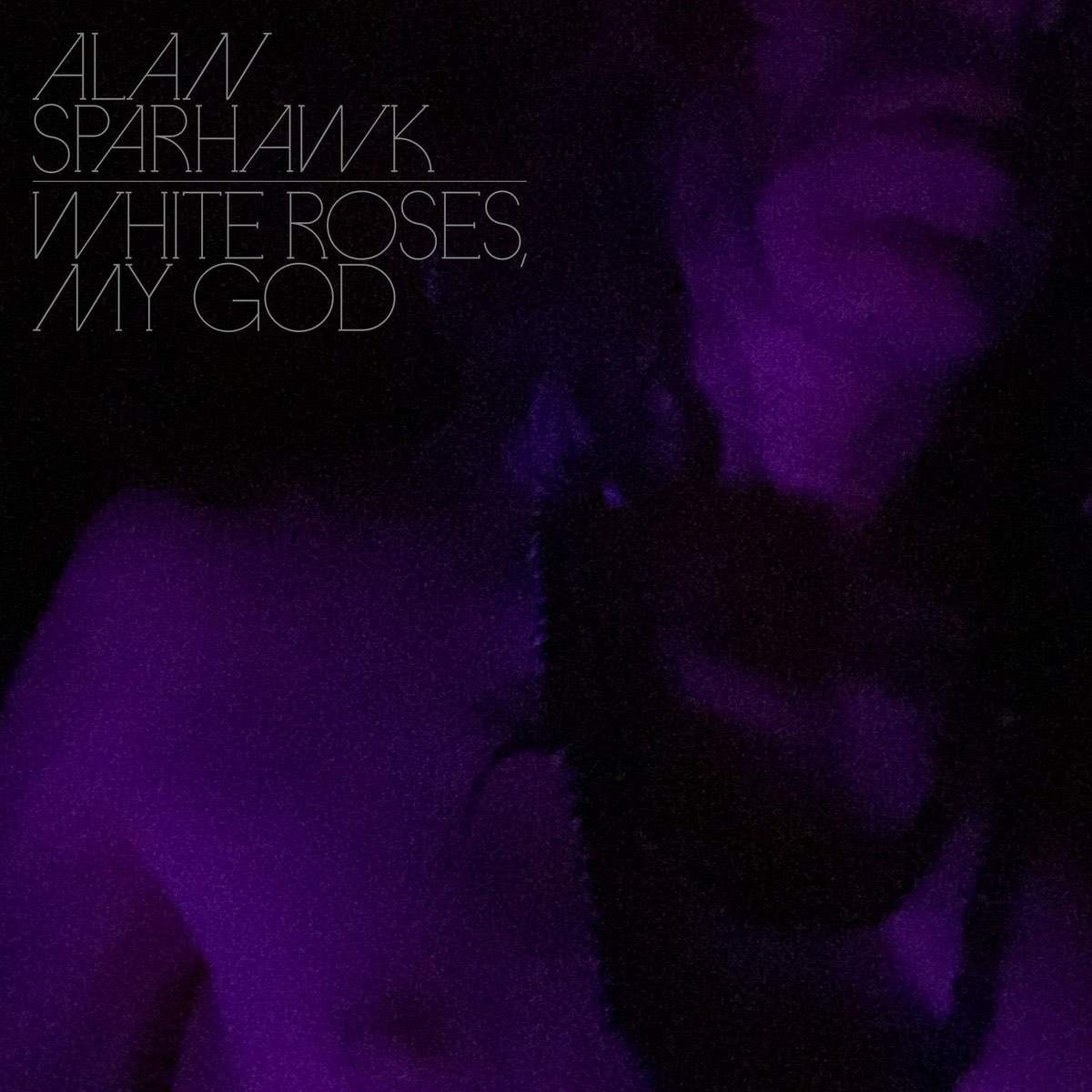Alan Sparhawk
White Roses, My God
SUB POP
White Roses, My God is Alan Sparhawk’s first solo album and the first music he’s made since the death of his wife, Mimi Parker, from ovarian cancer in 2022. It was with her that he co-founded the influential band Low in 1993, and they were side by side ever since—until, of course, they weren’t. It’s unsurprising, then, that White Roses is an album born out of Sparhawk’s grief. What is surprising is how that grief has manifested in the music. Because while Low’s beautiful, mesmerizing slowcore often felt like grief itself (just listen to 2001’s “Sunflower,” which is mourning personified perfectly), the 11 songs that make up this record are nothing like you’d expect.
Rather than lean heavily into the melancholy that was so salient in that band’s sound, here Sparhawk leans instead toward electronics and heavily modified vocals to create something that sits more in the pop-rap space than anywhere Low previously inhabited. Which is a perfectly natural response to death and loss, to the lacuna that arises from both of those things, and one that serves more as a shaking free from the past and the heavy weight of mourning than indulging in the depressing feelings it also invokes. Inspired, apparently, by his children and their friends messing around in the studio, Sparhawk started experimenting with unfamiliar instruments, improvising until a song had been formed. As such, White Roses, My God is as much about that joy of creation—of using those unfamiliar tools as a means of distraction—as it is about the sorrow that preceded it.
Throughout, there’s a tug of war between those two extremes, from the whimsical creative exuberance of “I Made This Beat” (which repeats that line constantly in different forms, tones, and pitch levels as the song essentially explores itself) and “Not the 1” to the heart-torn “Heaven,” a slow, despondent, artificial gospel track that reaches for a place whose very existence the song (and then song’s inspiration) almost calls into question—despite, of course, Sparhawk and Parker’s Mormonism. “Brother” is similarly affecting, while the dark-ish strains of “Black Water” and the gentle soul-searching of “Somebody Else’s Room” are playfully solemn: respectful of death, but fully aware that life carries on regardless.
The whole thing comes to a poignant and powerful end with “Project 4 Ever,” a finale that slowly builds up to sound akin to bright lights—perhaps of the ER, perhaps heaven, perhaps just the nothingness that comes after life—intensifying little by little until, like life, it suddenly stops.







